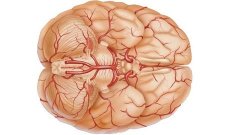New publications
Blood test developed for early diagnosis of Alzheimer's disease
Last reviewed: 30.06.2025

All iLive content is medically reviewed or fact checked to ensure as much factual accuracy as possible.
We have strict sourcing guidelines and only link to reputable media sites, academic research institutions and, whenever possible, medically peer reviewed studies. Note that the numbers in parentheses ([1], [2], etc.) are clickable links to these studies.
If you feel that any of our content is inaccurate, out-of-date, or otherwise questionable, please select it and press Ctrl + Enter.

Australian experts from the Commonwealth Scientific and Industrial Research Organisation (CSIRO) have developed a blood test that can determine how much beta-amyloid plaque has accumulated in the brain, which is a sign of Alzheimer's disease.
Today, 35 million people worldwide suffer from Alzheimer's disease. It is the most common form of dementia. There are no treatments for the disease yet; the drugs offered only alleviate its symptoms.
Early diagnosis of Alzheimer's disease is possible; beta-amyloid deposits can be seen using a CT scan of the brain ten or more years before memory and thinking problems appear. However, CT scanning is a rather expensive way to detect the disease, so scientists have continued to work on finding quick and cheap ways to diagnose Alzheimer's disease.
A team of specialists from CSIRO and several universities conducted a long-term study involving 1,100 people, some of whom were sick. First, blood was taken from 273 participants for analysis. The scientists identified nine hormones and proteins in the samples that seemed to them to be the most informative in relation to the level of beta-amyloid in the brain. Then the blood of the remaining subjects was analyzed for the presence of these nine markers. As a result, it was possible to separate healthy participants in the experiment from those who had so-called mild mental disorders. The presence of cognitive impairment in those identified by blood was confirmed by a CT scan of the brain.
Thus, the test allowed to correctly detect 83% of participants with a high concentration of beta-amyloid and 85% of healthy subjects. Scientists believe that these are quite high figures. The test was tested on 817 Australians and 74 US residents and showed the same accuracy.

 [
[